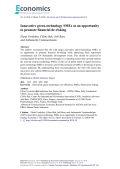
In this paper, Innovative Green-Technology SMEs as an Opportunity to Promote Financial De-Risking, the authors recommend that the G20 target innovative green-technology SMEs as an opportunity to promote financial de-risking while addressing Paris Agreement commitments and UN Sustainable Development Goals.
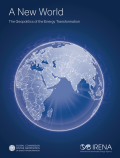
A New World: The Geopolitics of the Energy Transformation, analyzes the geopolitical implications of the global energy transformation driven by renewables. It is the culmination of ten months’ deliberations and consultations and informed by a number of background papers drafted by experts in the fields of energy, security, and geopolitics.
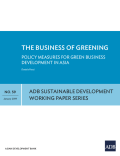
This publication examines the enormous potential for scaling up green business development in Asia and the Pacific, by reviewing green markets, technologies and practices before offering a set of policy options to enable governments and finance institutions to accelerate green business development in the region
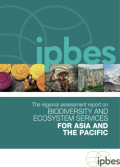
This Report provides a critical assessment of the full range of issues facing decision-makers, including the importance, status, trends and threats to biodiversity and nature’s contributions to people, as well as policy and management response options for the Asia Pacific region.
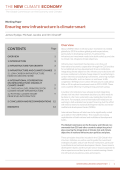
This paper discusses the inclusion of climate-related considerations in infrastructure planning and projects, and how investment in infrastructure can be scaled up to close the funding gap.
